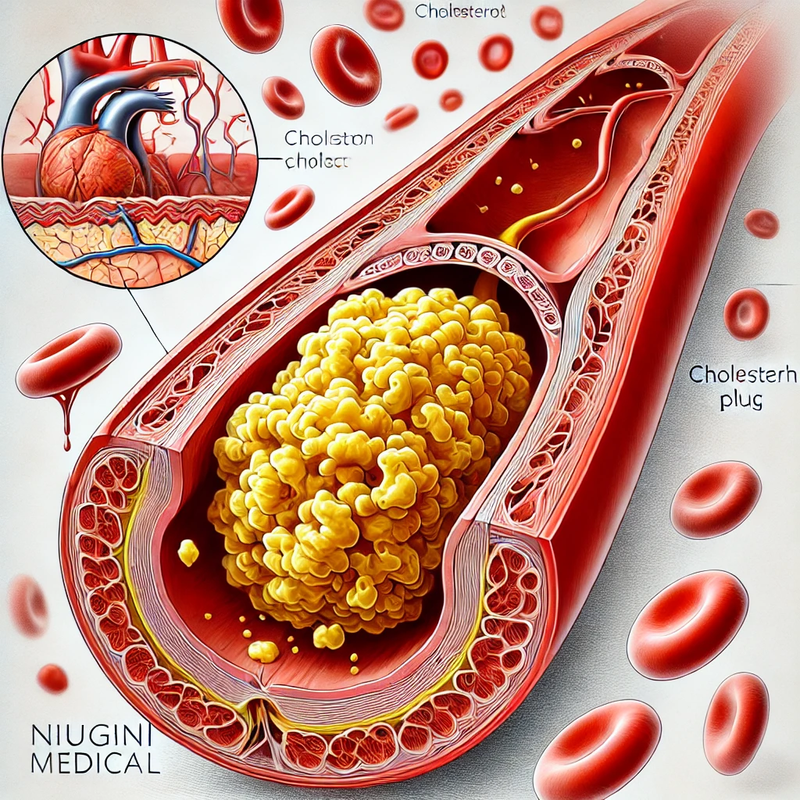Cholesterol-Fat Testing, Lipid Profile Testing

Question 1. What is cholesterol?
Cholesterol is a type of fat that is part of all animal cells. It is essential for many of the body’s metabolic processes, including hormone and bile production, and to help the body make vitamin D. However, there’s no need to eat foods high in cholesterol as body is very good at making its own cholesterol.
Question 2. Why is cholesterol bad?
Too much cholesterol in your diet can lead to heart disease, stroke, kidney damage, blindness and many blood vessel diseases. Excess cholesterol damages blood vessels and clots up your arteries blocking blood supply to vital organs such as heart and brain leading to death.
There are two types of cholesterol. The bad cholesterol called Low density lipoprotein cholesterol (LDLC) that takes cholesterol to tissues and clogs up your arteries and the good cholesterol, high density lipoprotein cholesterol (HDLC) that removes bad cholesterol away from tissues for excretion via liver.
Question 3. How is cholesterol measured?
Ideally, total cholesterol, LDLC, HDLC, and triglycerides is measured on fasting blood. You should fast for 9-12 hours prior to test and should have nothing including smoking except water prior to test. A 5-10mls of blood will be drawn and often this is enough to do electrolytes, glucose, kidney and liver tests.
Question 4. How much cholesterol is normal?
Authorities recommend that total cholesterol should be no higher than 5.5mmol/L. However, the lower the cholesterol the better especially if you have other risk factors such as smoking, diabetes, hypertension and over-weight.
Question 5. What if my levels are high?
If your level is high you should see your doctor for advice on treatment. Your doctor may assess the status of your heart, measure blood pressure, check your BMI, hormones levels and do further blood test to make sure you are not diabetic in order to offer appropriate advice on treatment.
Question 6. What is my actual risk of having high cholesterol-related diseases?
Your risk of vascular disease and heart attack increases proportional to cholesterol level, ie, the higher your cholesterol level the greater your risk of high cholesterol-related diseases. This risk is further amplified if you have other risk factors such as diabetes, smoking, hypertension, over-weight or family history.
Question 7. What is the treatment?
The treatment for high cholesterol is combination of lifestyle and dietary changes, exercise and drugs. You should see your doctor for more assistance. General advice include: no smoking or alcohol, increased physical activity (e.g.30 mins walk everyday), relaxation (avoid too much stress), and healthy diet composed of more vegetables, fish as a source of meat and less fat. Daily supplements of fish oil or omega 3 is also advisable.


